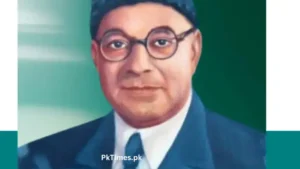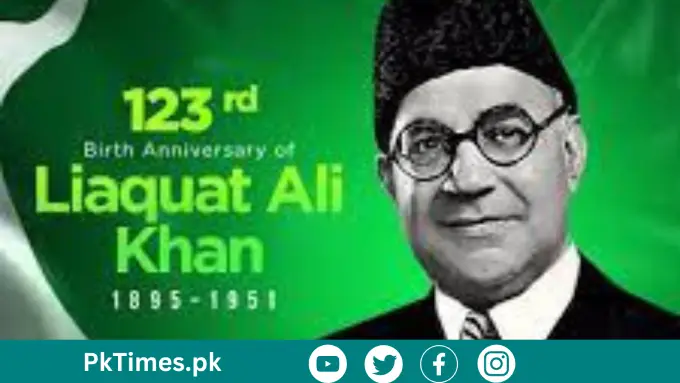As Pakistan emerged on the world stage in 1947, following the partition of British India, it embarked on a journey of nation-building under the guidance of visionary leaders. Central to this leadership was the role of the prime minister, tasked with overseeing the governance and development of the newly formed nation. In this blog post, we delve into the annals of history to uncover the identity and contributions of Pakistan’s first prime minister.
II. Formation of Pakistan
The partition of British India in 1947 resulted in the creation of two separate nations: India and Pakistan. With independence came the need for a constitutional framework and a system of governance to steer the newly formed states. Pakistan, as a sovereign nation, adopted a parliamentary system of government, with the prime minister serving as the head of government and the president as the head of state.
III. Liaquat Ali Khan: The First Prime Minister

At the helm of Pakistan’s leadership stood Liaquat Ali Khan, a prominent figure in the Pakistan Movement and a close associate of Muhammad Ali Jinnah. Liaquat Ali Khan played a pivotal role in advocating for the rights of Muslims in British India and was instrumental in the negotiations leading to the creation of Pakistan. In 1947, following independence, Khan was elected as Pakistan’s first prime minister, tasked with the monumental challenge of laying the foundations of the new nation.
IV. Khan’s Tenure as Prime Minister
Liaquat Ali Khan’s tenure as prime minister was marked by his unwavering commitment to stabilizing the fledgling nation and promoting its socio-economic development. Khan spearheaded initiatives to strengthen Pakistan’s institutions, foster national unity, and establish a framework for democratic governance. Despite facing numerous challenges, including internal strife, economic instability, and regional conflicts, Khan remained steadfast in his dedication to serving the interests of the Pakistani people.
V. Legacy of Liaquat Ali Khan
Liaquat Ali Khan’s legacy as Pakistan’s first prime minister is indelibly etched in the annals of history. His leadership, vision, and dedication to the principles of democracy and social justice continue to inspire generations of Pakistanis. Khan’s commitment to Islamic socialism and non-alignment shaped Pakistan’s foreign policy outlook and cemented its place on the world stage. Although his life was tragically cut short by assassination in 1951, Liaquat Ali Khan’s contributions to Pakistan’s early development and nation-building efforts remain a testament to his enduring legacy.
VI. Conclusion
In conclusion, Liaquat Ali Khan’s pivotal role as the first prime minister of Pakistan laid the groundwork for the nation’s democratic governance and socio-economic progress. His leadership, vision, and unwavering dedication to the ideals of democracy and social justice continue to resonate with Pakistanis today. As we reflect on Khan’s legacy, let us honor his memory by upholding the values of integrity, unity, and progress that he espoused and working towards a brighter future for Pakistan and its people.
Read more: who was the first president of Pakistan
FAQ’s
1. Who was Liaquat Ali Khan and why is he significant in Pakistan’s history?
Liaquat Ali Khan was a prominent political figure in the pre-partition era of British India and played a pivotal role in the Pakistan Movement. He served as Pakistan’s first prime minister after the country gained independence in 1947. Khan’s significance lies in his leadership during the formative years of Pakistan, where he worked tirelessly to stabilize the nation, promote democratic governance, and lay the groundwork for its socio-economic development.
2. What were some of Liaquat Ali Khan’s notable achievements during his tenure as prime minister?
During his tenure as prime minister, Liaquat Ali Khan focused on consolidating Pakistan’s institutions, fostering national unity, and promoting economic development. He implemented land reforms to address issues of land ownership and distribution, initiated industrialization projects to spur economic growth, and played a key role in formulating Pakistan’s foreign policy stance of non-alignment and Islamic socialism.
3. How did Liaquat Ali Khan’s assassination impact Pakistan’s political landscape?
Liaquat Ali Khan’s assassination in 1951 had a profound impact on Pakistan’s political landscape. His untimely death left a void in the leadership of the country and led to a period of political instability. The absence of his visionary leadership hindered the implementation of his socio-economic reforms and left a lasting impact on Pakistan’s trajectory. However, Khan’s legacy as a champion of democracy and social justice continues to inspire generations of Pakistanis.


